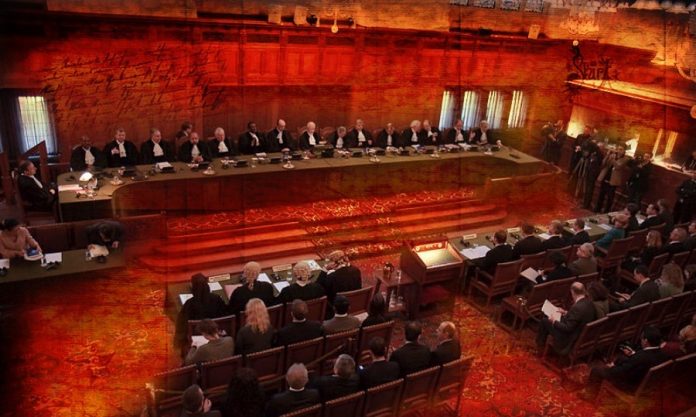This article is written by Sanjana Jain Student, Guru Gobind Singh Indraprastha University, Delhi. This article talks about the International Criminal Court and the achievements, failure and challenges faced by it for war crimes. This article also talks about the probable solution that ICC should take in order to fix the drawbacks.
Table of Contents
Introduction
As a consequence of the Rome Statute in 1998, the International Criminal Court (ICC) was established with the aim of prosecution of persons who committed war crimes i.e. crime against humanity and genocide. The headquarters of the International Criminal Court is in the Hague, Netherlands. ICC being the first permanent international criminal court the proceedings of it can take place anywhere in the world. The criminal courts were functioning on an adhoc basis, before the establishment of ICC. According to the first public prosecutor of the ICC and an Argentina lawyer, Rome Statute ensures that each and every criminal gets punished for the criminal acts and victims get justice.
The main aim of this judicial body is to prosecute individuals that are involved in heinous criminal acts. The ICC statute came into force on July 1, 2002, when it had been ratified by sixty states, at present 123 states are the party to the International Criminal Court.
The international body, the United Nations, also agrees with other countries for the formation of the International Criminal Court for the purpose of prosecuting and punishing criminals involved or responsible for genocide. According to the Secretary-General of the General Assembly, after the World War II, many nations believe that in the future they will never see the horrors and the atrocities committed during the war, but it is unfortunate to see the repetition of those horrors and atrocities in Bosnia, Cambodia, and Herzegovina and Rwanda and that became the reason for support from nations for the formation of the International Criminal Court.
Historical background
After World War II the ad hoc tribunal was created in Nuremberg, and a precedent was set by the tribunal in which the international community would hold individuals responsible for grave crimes, however, the responsibility of the State was still maintained. In order to address the problems in former Yugoslavia, the ad hoc tribunals were established and in Rwanda, the pattern of holding individuals responsible for crimes such as genocide, a crime against humanity, and war crimes continued. However, the requirement for a permanent court for the trial of these issues was recognized by the international community. In order to meet this requirement, the international community gives its consent for the establishment of the ICC.
The statutes of the International Criminal Tribunal for the former Yugoslavia (ICTY) and International Criminal Tribunal for Rwanda (ICTR) were considered by the international community while forming definitions of crimes that will be included in the court’s jurisdiction. In 1998, on the establishment of an International Criminal Court, at the U.N Diplomatic Conference of Plenipotentiaries, the Rome Statute was adopted, which is also known as the Rome Conference. The Rome Statute was promulgated on 1st July 2002, after ratification by sixty State parties.
Triggering mechanisms
Ways in which jurisdiction is assumed by the International Criminal Court over the specified crimes provided under the statute are as follows:
- Reference made by a State party, or
- Reference made by the Security Council under Chapter VII of the UN Charter,
- Any investigation was done by the ICC prosecutor of his own accord.
The fourth possibility is when a declaration is made by a state that is not a party to the Rome Statute allowing the jurisdiction of the court over acts committed on its territory. The release of the ICC Prosecutor’s Report on the Darfur situation investigation shows that a step ahead has been taken towards the court’s first prosecutions. Even though the evidence has been collected and staff has been hired, it is not yet clear when the first prosecutions will begin. Moreover, there is no signal yet of whether the court is developed enough to handle the complexity of the Darfur situation.
The success of the International Criminal Court
From the above, we can see that the ICC is the forerunner in its aim to provide punishment to the criminals and justice to the victims. Due to the functioning of the tribunals in the past, there was some reason to be positive, for example, the models set for delivering justice, by Rwanda and Yugoslavia tribunals, in the decades of the 1990s. These cases proved what we never thought to imagine i.e the head of the state standing for the trial, this changed the point of view that a trans-nationality legal system can be established. These tribunals also convicted several criminals for committing crimes against humanity, a war crime, and genocide.
The reason to establish ICC was not only to punish criminals who have committed crimes against humanity, genocide, and war crimes but also to prevent such crimes from taking place in the future. But the ICC’s accomplishment is not consistent if we calculate the functioning of the ICC in the form of statistical data. As of now only eight investigations and six arrests have taken place, and only one trial has been completed with a conviction, but that is also subject to appeal.
In order to increase the effectiveness of ICC on the global level, it has to be complementary and supplementary to the national courts, which will enable the states to prosecute the criminals on their own as well. ICC will serve as a last resort in cases in which the State is not willing to prosecute the criminals of a heinous crime. If a State takes up a case for prosecution, the ICC will ensure impartiality and also checks any delay or interference created by the government. Helping the state in prosecuting their own criminals, is considered as one of the successes of the ICC.
As of now, terrorism has also been included in the list of crimes to be addressed by ICC, the task of adding terrorism in the list of crimes entertained by ICC is yet to be done as the amendment for the inclusion of terrorism is yet to be finalized.
In 2010, the Kampala Conference proved to be a good initiative for the state parties as it shows the acceptability by the state parties to the changing transnational scenario. In the conference, the UN Security Resolution was discussed in detail, and aggression was included in the list of crimes which are in the jurisdiction of the ICC. The recommendations made in this conference are expected to be implemented by 1st January 2017, and can take effect as a treaty. The inclusion of aggression to the list of crimes has facilitated in extending the jurisdiction of ICC and also at the same time guaranteeing global peace.
The failures of ICC
Under the guidance of the ad-hoc tribunals, ICC has developed the concept of accountability. The Security Council has been mandated to claim jurisdiction over human rights. Plenty of resources have been allotted to ICC for its smooth functioning, but it has failed to maintain a high-level prosecution, also in its prosecution there has been a geographical disproportion. It has been noticed many times that ICC never forgets to take action against the violation of human rights in Africa, although there is a violation of human rights in almost all continents, the attention of ICC’s investigation has remained on Africa only. This has raised questions on the credibility of the ICC and also on ICC as a tool of the west.
In the Omar-al-Bashir case, ICC leveled charges against the head of state for committing a crime in Darfur, but the President of Bashir was able to avoid the arrest and prosecution due to strong support behind him. He also traveled across countries that are signatories of the ICC, but the countries also not arrest the head of state, the inability of the ICC to convince or make pressure upon the state to arrest him has failed its standing. Also, it is important to throw light in Sudan where there were also 10 other human rights violators who could have been easily arrested and a trial can take place with a higher probability of conviction. This action could have set a strong example for all the violators that any time the noose around their necks can get tightened.
Another similar example is Libya, where the referrals against Gaddafi did much more harm than a good. The court has a mission to give justice and it cannot be put into force without consideration of the limits and performance of the court, therefore the argument was raised by many quarters that its high time, now ICC has to fulfill the goals for which it has been established and meet up our expectations.
Reasons for failure
- Absence of enforcement mechanism.
- No checks and balances.
- Cooperation with the states.
- Partial towards the West.
- Limited funds and human resources.
- No retrospective jurisdiction.
Way-out
- States shall cooperate with ICC and shall also support defenders of human rights working towards international justice and fulfillment of ICC’s aim.
- In order to enhance its credibility, ICC has to broaden its ambit by the inclusion of more permanent members of the UN and also by strengthening its investigations and prosecutions.
- The role of ICC is very important as international justice can lead to long-term peace and stable and equitable development in post-conflict societies.
Challenges faced by ICC for war crimes
Like every international body, ICC also faces certain challenges when dealing with war crimes.
War crime in Afghanistan
This occurred when the U.S entered Afghanistan after the 9/11 attacks and violated many human rights, when ICC started an investigation on this, an investigation was started on ICC itself by the U.S.A, which was highly criticized by ICC. They want to say that the U.S is not a party of the ICC and therefore no right of investigation is vested with ICC, also the secretary of state called the ICC as a “Kangaroo Court”.
War crime in Darfur
This occurred when the fight was started by two rebel groups against the government as according to them the government was partial against the non-Arab population, this conflict results in the loss of life of thousands of people. This issue was raised in front of the ICC in 2005, but it was protested by the government of Sudanese by saying that ICC has no jurisdiction to entertain this, and ICC due to lack of support was unable to take any step towards it.
War crime in Uganda
This occurred when the Guerilla group leader i.e Joseph K. Kony in Sudan, started its attack and in return, it was retaliated by the Lord’s Resistance Army (LRA). On investigation, it was found by the ICC that LRA had violated many human rights, but unfortunately, the investigation itself came under controversy due to many reasons.
Conclusion
ICC is still caught up in issues of universality and enforceability, even though it is the prime judicial body that is ratified by 123 countries. There are still 71 countries that have still not ratified the Rome Statute, these countries are not ratifying as they don’t want to come under the jurisdiction of ICC. This reason is causing a problem in administering justice, as ICC will not have jurisdiction in countries that have not ratified the statute. The participation from major countries of the world is necessary as without their cooperation an effective mechanism is not possible.
The prosecution and conviction of the criminals decide the success of ICC, however, by looking at its performance, we can say that the office of the prosecutor has failed in this regard. At present, a critical assessment of the prosecutor’s office is the need for an hour. There have been many instances when the judges of ICC have gone against the prosecutor because of the lack of research and investigation done by him. Therefore, there is a need for a team of professional, and dedicated individuals, at the prosecutor’s office for successful prosecution and conviction of criminals. Thus, in a nutshell, what the court really needs to do is to increase its potential in order to curb the crime, which is threatening the peace, security, and well-being of the people.
References
- https://www.un.org/press/en/2018/ga12084.doc.htm
- https://www.icc-cpi.int/iccdocs/PIDS/publications/UICCEng.pdf
- https://www.hrw.org/report/2008/07/11/courting-history/landmark-international-criminal-courts-first-years
- https://medcraveonline.com/FRCIJ/role-of-the-security-council-in-triggering-the-jurisdiction-of-the-international-criminal-court.html
LawSikho has created a telegram group for exchanging legal knowledge, referrals and various opportunities. You can click on this link and join:
 Serato DJ Crack 2025Serato DJ PRO Crack
Serato DJ Crack 2025Serato DJ PRO Crack











 Allow notifications
Allow notifications


